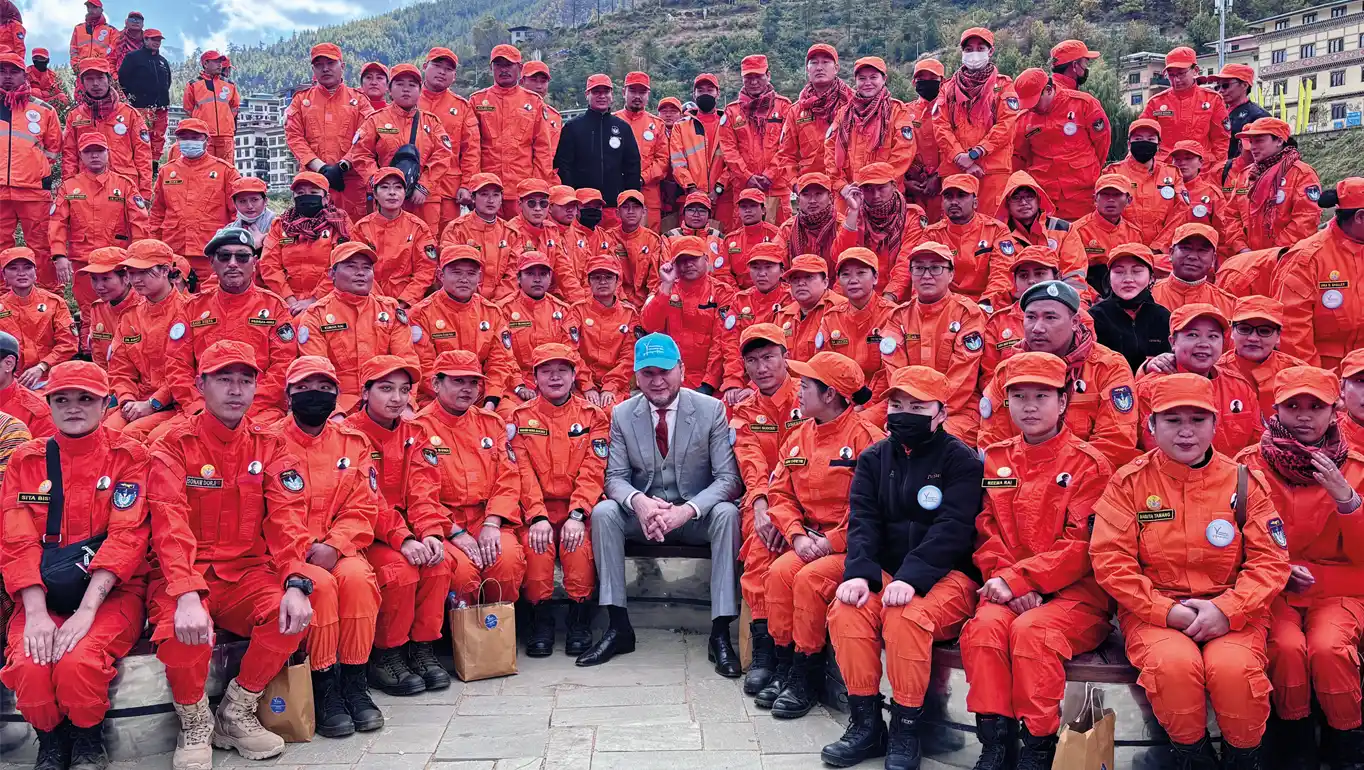“My career led me to UNV in twists and turns,” begins Toily Kurbanov, Executive Coordinator of the United Nations Volunteers (UNV). Reflecting on his journey, he explains how he transitioned from financial services to national government before joining the UN, gaining over a decade of leadership experience at a national level before moving into the international sphere. “I started with UNV first as the Deputy Executive Coordinator, where there seemed to be some interest in having someone with broad field experience. Eventually, I took over as the Executive Coordinator in January 2021.”
When asked about the future of volunteerism, he acknowledges the complexity of making predictions. “With all humility, I would not profess that I have a particular view about the future of volunteerism, but I can speak about a couple of trends that are in play now.” One key trend is that volunteerism is not limited to youth but extending into mid-career, post-career, and retirement phases. “It is going to be an increasingly lifecycle activity,” he notes.
Another significant trend is the global nature of volunteerism. “It won’t be just north to south, or south to north. It will become part and parcel of societal life all across the globe.” He sees no reason why this evolution would not continue.
The structure of volunteerism is also shifting. Traditionally, it was community-based and informal, often through faith-based organizations or local networks. However, “increasingly, we’ll see this becoming more structured through organized groups and institutions such as UNV.” The digital age is also playing a role in transforming volunteerism. “For many volunteering activities today, you don’t need to pack and move across the globe. You can provide meaningful support online.” UNV’s online volunteering service has grown significantly, offering new ways for people to contribute.
Challenges in mobilizing volunteers
Volunteerism is often linked to unpaid labor, which can sometimes contradict the values upheld by the UN. Mr. Kurbanov explains that mobilizing volunteers involves both demand and supply. “There is a demand perspective—ensuring there is interest from UN partners and a supply perspective, so that there are volunteers willing to offer their time and skills.”
As UN programs evolve, there is an increasing demand for volunteers with technical expertise. “Volunteering used to be more about community-level projects, but now there is more interest in technical skills, from data scientists to epidemiologists.” On the supply side, the challenge is to create opportunities not just for community-level work, but also for professionals with specialized skills.
Another shift is the increasing reliance on national expertise rather than international volunteers. “There have been significant gains in human capital in the developing countries of the Global South, and there is a lot of interest in tapping into that talent.” Staying ahead of these changes and anticipating future demand is a crucial part of UNV’s work.
Lessons from volunteerism
“One lesson I’m learning every day is humility,” he shares. It is essential for volunteers and organizations alike to stay grounded and connected to the realities on the ground. “Every now and then, we have this perspective that we are here to change the world. But we must retain humility.”
Balancing idealism with realism is another crucial lesson. “Volunteerism attracts passionate, empathetic people, but we must ensure they don’t become disillusioned. We don’t want idealists turning into cynics.” Striking this balance is key to sustaining long-term engagement in volunteering.
Making a difference: UNV in action
Rather than singling out specific countries, Toily highlights impactful moments, particularly during the COVID-19 pandemic. “At the beginning of the pandemic, UN agencies couldn’t mobilize international specialists.
They turned to UNV, and we recruited thousands of national volunteers to ensure UN programs continued.” These volunteers worked with WHO, UNICEF, UNDP, and other agencies to support pandemic responses globally.
Another area of progress is disability inclusion. “Pre-COVID, there were only five UN volunteers with disabilities in the entire UN system. Last year, we had over 270. It’s still a work in progress, but we are moving towards making disability inclusion the new normal in the UNV sphere.”
Ensuring volunteer safety and well-being
When asked about safeguarding the well-being of volunteers in high-risk environments, he states unequivocally: “We apply the same standards for UN volunteers as we do for any other UN personnel.” This includes work-life balance, safety, and mental well-being. “It is a shared responsibility between UNV, the receiving office, and the volunteers themselves.” By ensuring equal standards and collaboration, UNV aims to create a safe and supportive environment for its volunteers worldwide.
Toily emphasizes the ongoing evolution of volunteerism: “Volunteerism is changing. It is becoming more structured, more digital, more inclusive. But at its core, it remains about people coming together to make a difference.” UNV continues to adapt, ensuring that volunteers remain a vital force for positive change across the globe.



